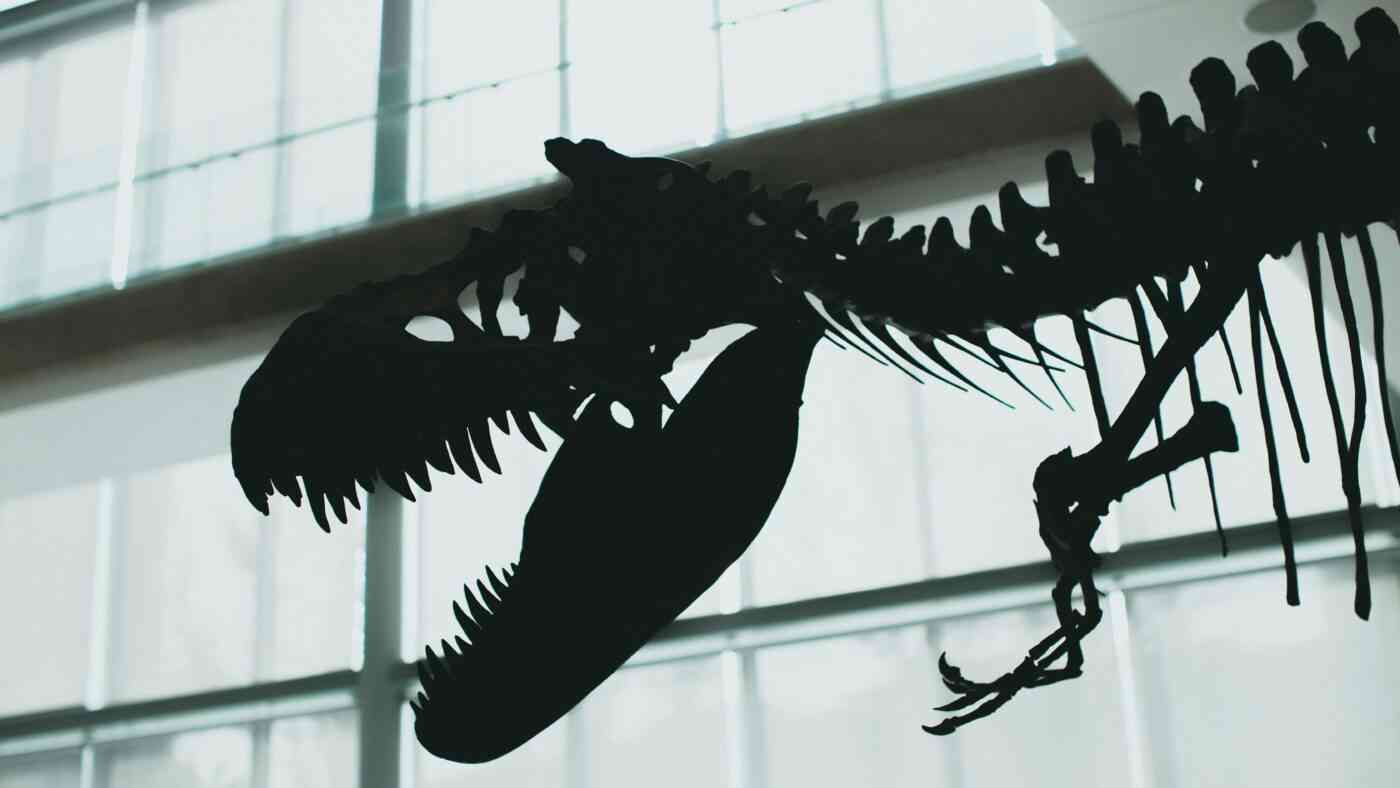Science
Ghost in the Stone: AI Uncovers Prehistoric Clues That Could Rewrite Bird Evolution
17 February 2026

We’re wired to crave love – to seek comfort in the warmth of another’s care, to trust that their hands, extended toward us, mean safety. But not all hands lift you up. Some press down, disguised as shelter while building walls. Overprotectiveness speaks the language of love but carries the weight of control. It whispers, “I’m doing this for you,” while quietly clipping your wings. The line between care and domination is thin, and once crossed, what was meant to be a safety net becomes a cage.
Now streaming on multiple platforms, Run (directed by Aneesh Chaganty) isn’t just a thriller – it’s a masterclass in psychological tension, wrapped in the deceptively soft packaging of a mother–daughter drama. On the surface, it’s the story of a selfless single mother who has given up everything – her career, her independence, her very sense of self – to care for her disabled daughter. Her devotion appears limitless, her sacrifices almost saintly.
But then, the veneer cracks.
A smile that doesn’t reach the eyes. A grip is just a little too tight. A refusal to let go, even for a second. What starts as a touching narrative of maternal love curdles into something far more unsettling – a slow, suffocating unraveling of the line between nurturing and domination, between safeguarding and imprisoning.
At the heart of Run – and, perhaps, at the heart of so many toxic relationships – lies a terrifying truth: the most dangerous love is the kind that refuses to let you leave.
The film exposes how easily care can mutate into control when driven by fear, insecurity, or the need to possess. Every locked door, every withheld secret, every “I’m doing this for your own good” is another brick in a wall the victim never asked to be built.
By the end, the question lingers: When does protection become a prison? And how many of us, in our own lives, have mistaken one for the other?

Love means wanting what’s best for someone. Control means wanting power over them. The line seems obvious – until you’re the one holding the leash.
In parent–child relationships, care should mean safety, support, and steady guidance. But when does it cross into something darker?
The truth? Control disguises itself as love. It justifies overreach as “just worrying,” and reframes invasion as “being involved.” But the damage is real: stifled independence, eroded trust, and resentment that lasts decades.
So here’s the real test: Are your actions about their needs – or your fears?
We say “I love you” to mean “I want what’s best for you.” But sometimes what we really mean is “I need to control you.” The difference seems obvious in theory – until you’re the one rationalizing your behavior.
That furtive glance at your phone screen. The relentless interrogation: “Who are you with? Where exactly? When will you be back?” The growing unease that your every move requires justification.
Here’s the hard truth: Healthy love gives oxygen. Toxic love sucks it away. One helps you grow, the other keeps you small. One celebrates your freedom, and the other sees it as betrayal.
So ask yourself: Does this relationship feel like a safe haven – or a softly padded cage?
Recommended: Empathy vs. Fear. The Timeless Psychology of Power
When it comes to raising children, it’s no surprise that parents feel responsible for them. It’s only natural to worry when they don’t know who their child is spending time with or how they’re filling their free hours. But even Abraham Lincoln, the legendary U.S. President, once said: “Love is the chain that binds a child to its parents.”
Yet all too often – especially as children grow older – what masquerades as loving concern and responsibility is something else entirely. In reality, it’s overprotectiveness, personal fears, and the resulting hunger for control that takes the wheel, forging that very same metaphorical “chain.”
Is it still love… or is it restraint? The line is thinner than we think.
Excessive protectiveness can, over time, produce the exact opposite effect of what was intended. Overbearing concern – and the control that comes with it – can make a child feel trapped, surveilled at every turn, and slowly erode their sense of self-worth. Ironically, a parent’s smothering care often leads the child to one painful conclusion: “If they loved me, they’d trust me.” Instead, the child internalizes a far darker message – that their parent sees them as incapable, unworthy of respect.
Read also: Parenting with Depression Is Incredibly Difficult. But the Results Are Surprising
But here’s the real tragedy: most parents don’t even realize their “helping” hands are stripping their child of two vital life skills – accountability and independence. A young person needs room to stumble, to fail, to scrape their knees on the hard edges of reality. These experiences aren’t just formative; they’re the forge in which resilience, judgment, and identity are shaped.
A hyper-vigilant – or worse, controlling – parent doesn’t just shield their child from harm; they rob them of the right to become themselves. As Anne Frank poignantly wrote in her diary: “Parents can only give good advice or put their children on the right paths, but the final forming of a person’s character lies in their own hands.”
The question every parent must ask: Are you holding them close – or holding them back?
You might also like: Feral Children. Childhood’s Connection to Nature
Controlling behavior in adult relationships is equally – if not more – destructive. The delicate balance between genuine concern and suffocating control determines whether love thrives or withers. True connection blossoms when curiosity about your partner, the desire to truly know them, and acts of care are rooted in respect – for their boundaries, their freedom, and their right to privacy.
But here’s the uncomfortable truth: not all “care” is created equal. Those relentless “Where were you?” texts, the “just checking in” calls disguised as a concern – are they really about them, or are they about you? About your unspoken fears, your hunger for reassurance, your need to quiet the storm of what-ifs in your mind?
The moment concern morphs into surveillance, love starts to rot. Because control isn’t love – it’s fear in disguise. And no relationship ever grew stronger in the shadow of distrust.
We probe, we question, and we demand to know – not because we care, but because we need the answers to calm our own storms. Without control over the other, we feel untethered, as if peace is something we can only borrow, never own.
But here’s the painful paradox: no mature relationship survives where boundaries are ignored and freedom is treated as a threat. Over time, what begins as “just checking” hardens into something darker – a slow, suffocating imposition of will. The balance tips. Trust erodes. Resentment grows like weeds through cracks in what was once solid ground.
What begins as concern can subtly morph into something far more sinister – a sophisticated manipulation tactic. When you hear phrases like, “I’m just looking out for you – what’s your problem?” or the guilt-tripping “Fine, I’ll just stop caring about you then!”, your internal alarms should blare at full volume. These aren’t expressions of love; they’re emotional pressure tactics, weaponizing “care” to mask control.
Other red flags? Unwarranted jealousy that escalates over time, baseless suspicion, and decisions made for you – never with you. Then comes the isolation: “That friend isn’t good for you,” “Have some self-respect – they’re not worth your time,” “This relationship is toxic for you.” These statements aren’t protective – they’re possessive. They’re not about your well-being; they’re about power.
The antidote? Self-awareness. Know your boundaries. Know your worth. Because if you don’t, someone else will define them for you – and their version of “care” might just be a cage in disguise.
Because real protection doesn’t come from others watching over you – it comes from you watching out for yourself. Your power move – self-knowledge. When you’re crystal clear about what you will and won’t accept, no manipulator’s guise of worry can shake your foundation.
Translated, edited, and compiled from the Polish version by Joanna Sarata
Polish version: Nadopiekuńczość jest jak kajdany. Granica między troską a kontrolą
Science
17 February 2026

Science
17 February 2026


Zmień tryb na ciemny